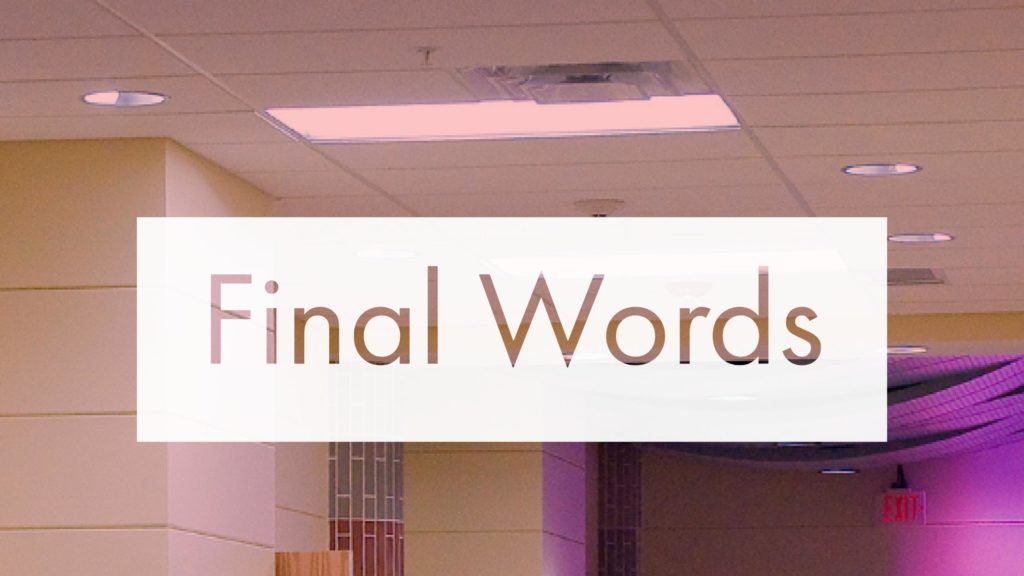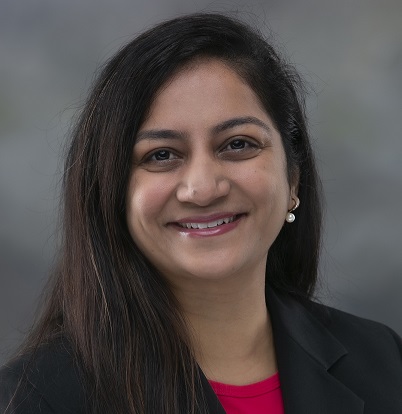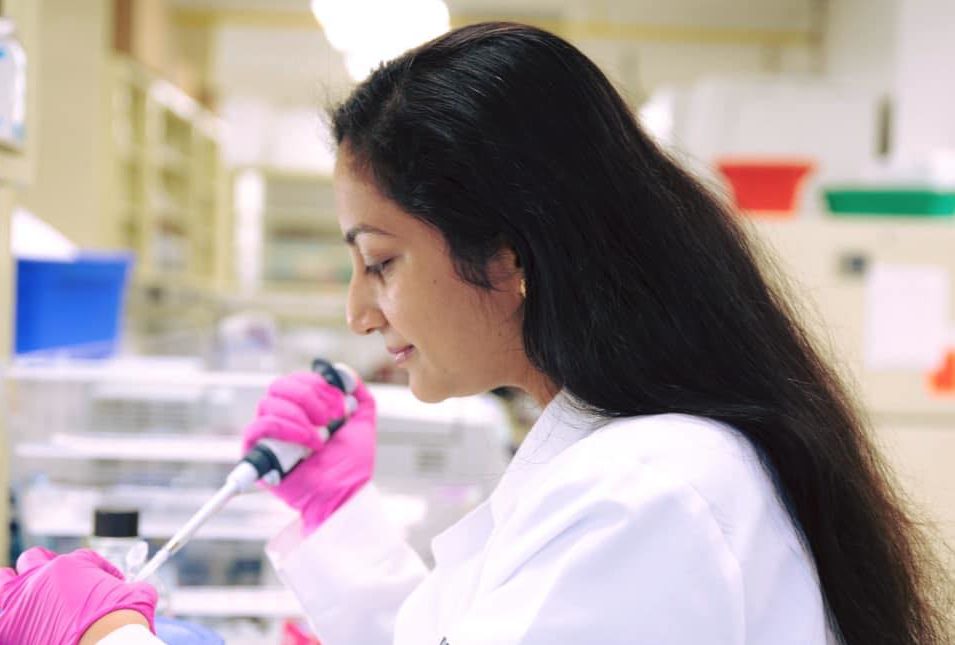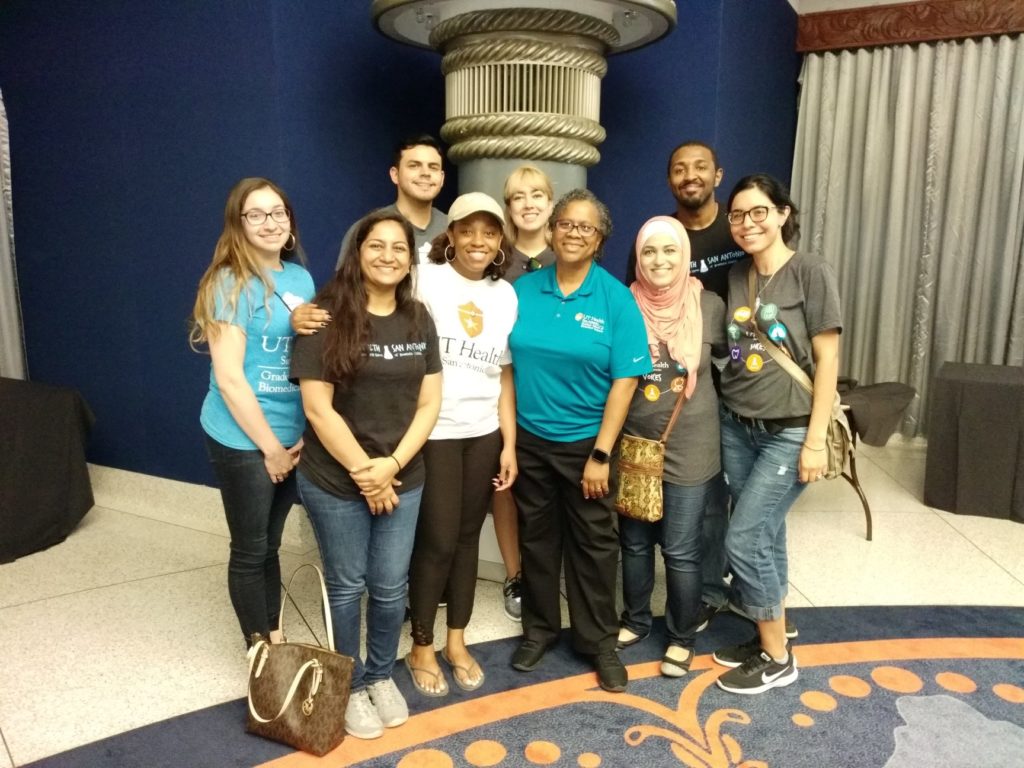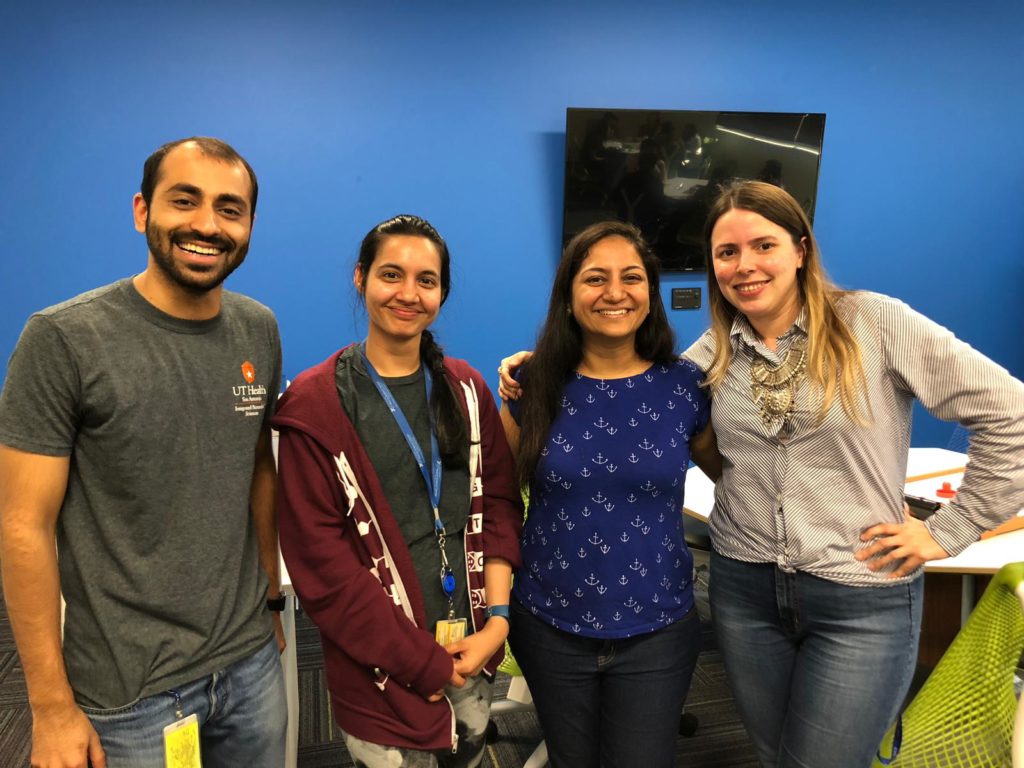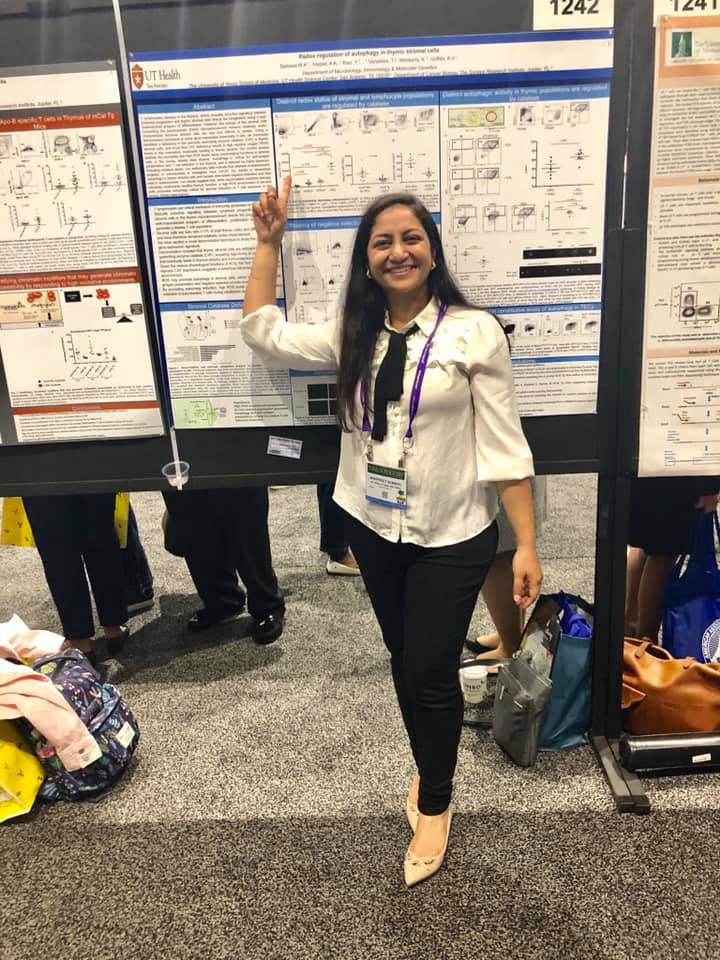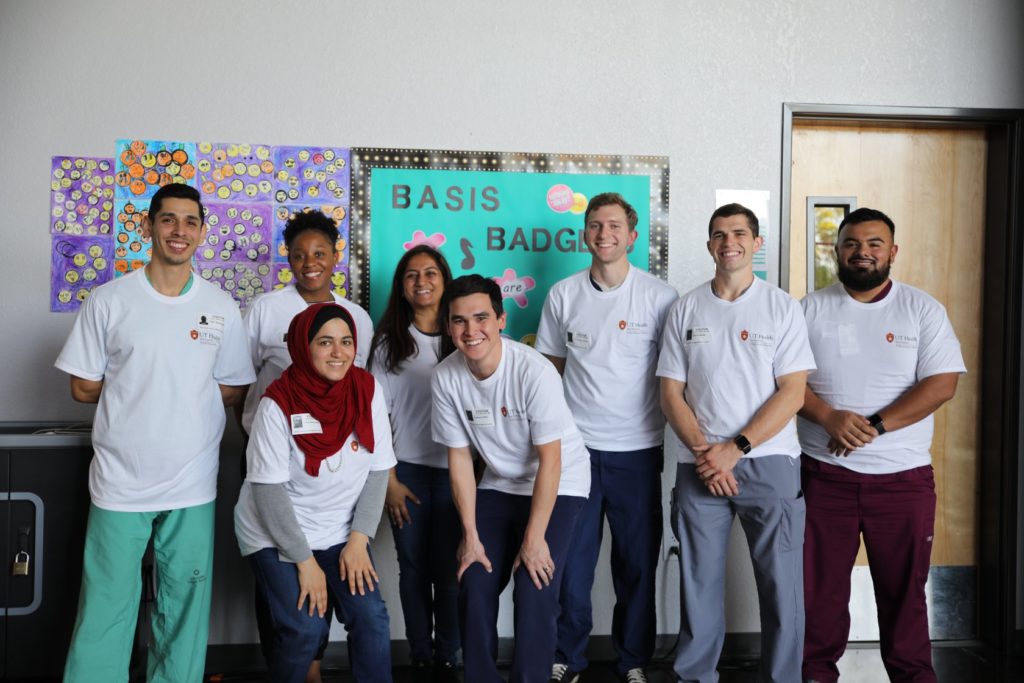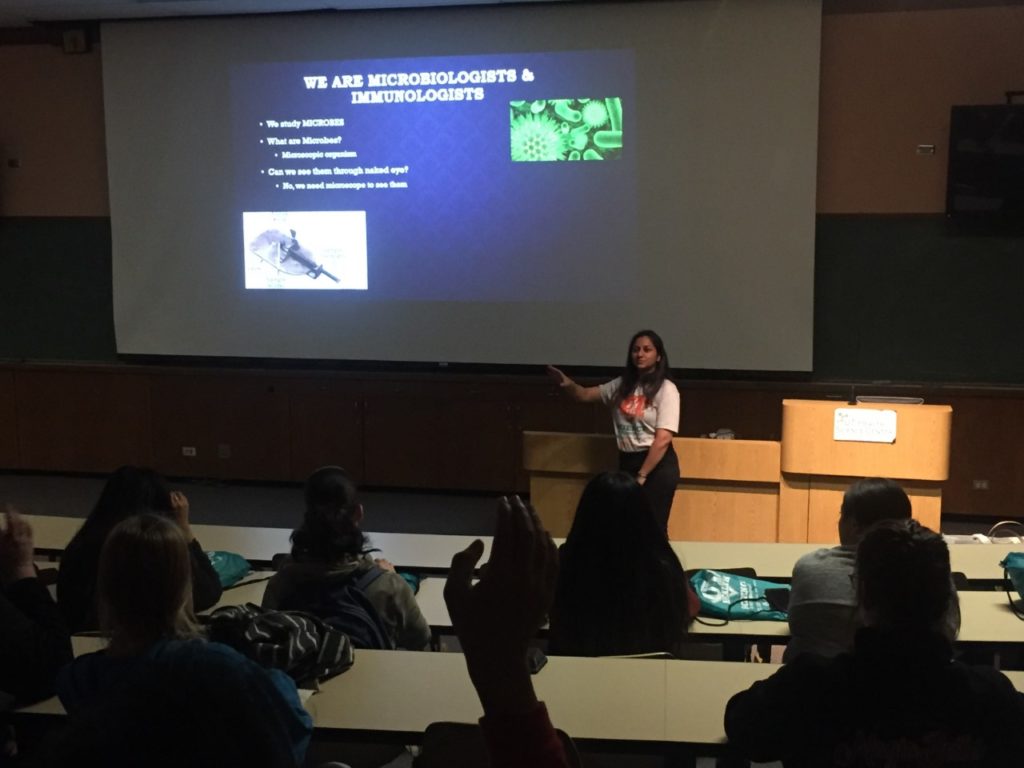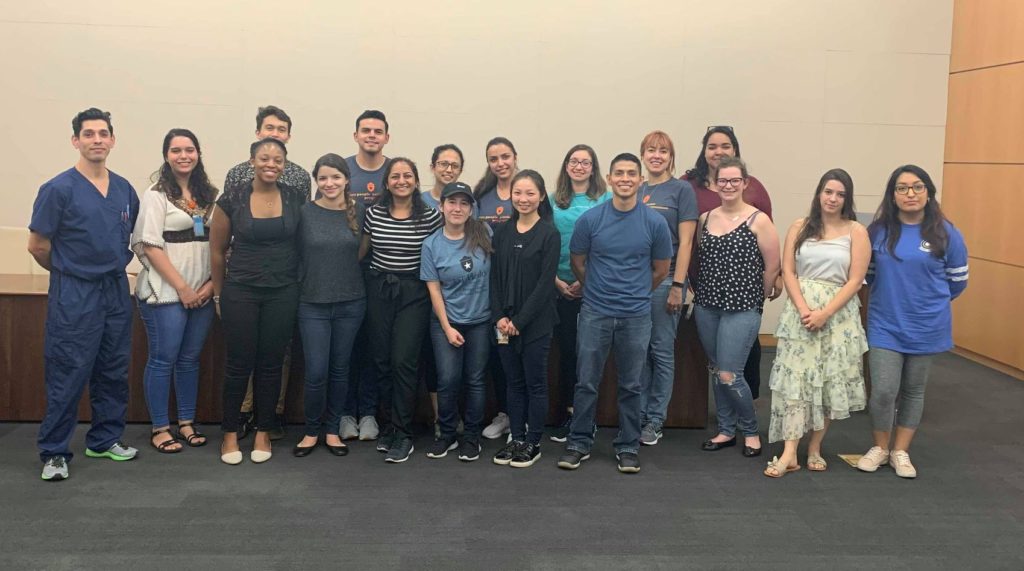Final Words: Manpreet Semwal, IBMS, Molecular Immunology & Microbiology
Your name, program, dissertation title, mentor name.
Name: Manpreet K Semwal
Program: Ph.D. in IBMS, Molecular Immunology & Microbiology
Dissertation title: Redox regulation of autophagy in thymic epithelial cells and T cell tolerance
Mentor name: Dr. Ann V. Griffith
Please tell me about yourself, why did you pick UT Health San Antonio, and your program.
I grew up in Mumbai, India where I completed my bachelor’s and master’s degree in Microbiology and Immunology from the University of Mumbai. Later I joined as the faculty and taught undergraduate Microbiology and Biotechnology and served as the department head at Patkar-Varde College.
Before applying to the Ph.D. program at UT Health San Antonio, I enrolled as a non-degree student at UT Health San Antonio and gained research experience at Dr. Yidong Bai’s lab studying mitochondrial function. I picked up the IBMS PhD program at UT Health San Antonio because of its student-centered learning, and highly research collaborative environment.
What has been the highlight of graduate school so far? Have you won any awards or have there been any achievements you’ve been proud of?
There have been many highlights during graduate school, defending my dissertation and in-person convocation ceremony tops the list. I find teaching and mentoring a very rewarding experience and was very happy when I was selected to teach Ph.D. Pre-matriculation as a co-instructor. I have also enjoyed mentoring several undergrad, masters and Ph.D. students in the lab and giving a guest lecture on Immunology at Texas A&M at San Antonio.
I have been very enthusiastic in various leadership and volunteering roles and served as an executive member of SACNAS and founding member of Graduate Student International Club. I enjoyed organizing several talks and events specially organizing culturally diverse Indian festival Diwali, thrice along with the Office of International Services in an effort to shine a light on the rich cultural diversity on the campus, and a cook-out event for Juneteenth celebration. I was also honored to be invited as a speaker for Mikiten Graduate Research Symposium in 2020. Additionally, I am very thankful for pipette gazette to give me a platform for practicing my writing skills and let me write 5 articles for the magazine!
During my time as a Ph.D. student , I have won outstanding poster award at Vaccine conference, 2 MIMG travel awards, GSBS travel award, AAI trainee abstract award and Outstanding Student Leadership award.
Please provide a few sentences summarizing your dissertation. What was the experience like for you?
My dissertation is about understanding the role of high redox environment in thymic epithelial cells (TECs), more specifically in cortex (cTECs). In my dissertation, I have suggested a novel metabolic mechanism by which redox status of cTECs regulate central T cell tolerance in the thymus through autophagy pathway.
It was a challenging project, with a very bumpy ride. I had to optimize several protocols and had lots of negative data in the beginning. Reading helped me a lot understanding and improvising the project and I got great suggestions from my committee members over the time. Lots of sweat, tears and blood (literally) went into this project and I wouldn’t change a single thing because it was a great learning experience.
Why are you passionate about your research topic? How did you first become interested in it?
Thymus is the organ for T-cell development which atrophies as we age. This is one of the reasons why elderly population become more susceptible to infections and other immune disorders. One of the challenges associated in the thymus field is understanding the biology of thymic stromal cells (TSCs) which provide signals for T-cell development. Understanding their biology can help improve vaccine responses and infection responses in age-induced thymic atrophy.
My PI, Dr. Griffith’s paper from 2015 showed very low levels of catalase expression in TSCs. Since, catalase enzyme is ubiquitous across other tissues, it was surprising to find that these TSCs were repressing catalase which made us speculate if there is any selective advantage of having high reactive oxygen species (ROS) levels in TSCs. ROS is usually seen as a damaging molecule, but recent research has shown that ROS levels are important in various signaling pathways including autophagy. Autophagy is shown to be important in antigen presentation in thymus and we speculated whether these low catalase levels have any role in autophagy and antigen presentation in thymus. And the journey of my project started!
What’s next?
I will be joining Dr. Nicolas Musi’s lab as a postdoctoral fellow where I will be studying the biology of adipose tissue related to aging and metabolic disease.
Any advice for your fellow graduate students?
Read, read and read as many papers as you can!! Few hours of reading can save you weeks of lab work. Also, do not hesitate to ask for help from your fellows or faculties. And please hang in there. There is a light at the end of the tunnel.

